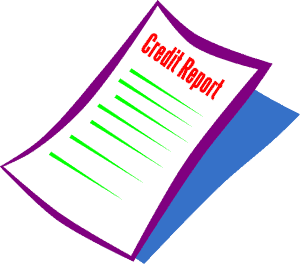While having a lot of money is one way to purchase expensive items like homes and vehicles, most people rely on credit to make these sorts of purchases. To qualify for credit when you do not have enough money for an entire purchase requires that you have a solid financial history. In addition, you often need a relatively high credit score.

The truth is, many people do not have high credit scores, though. While turning to a reputable credit builder may be a smart idea for help moving forward, it is also useful to educate yourself on the types of actions that can harm your credit score further. Sometimes, you may even be hurting your credit more in an effort to save it. Without further ado, here are six examples for you to consider.
1. Applying for Multiple Credit Offers Hoping To Receive At Least One Approval
When one lender turns you down, it may be tempting to submit multiple applications in an effort to increase your chances for approval. In truth, this can actually harm your credit because you are making so many inquiries at once. It can give banks the idea that you need significantly more credit than you really do. In turn, this can make you look risky.
2. Closing a Newer Credit Card To Lower Utilization
Although high credit utilization can hurt your credit score, closing newer credit cards can be a bad idea because another factor that determines your score’s calculation is how long each of your accounts has been open. When it is less than seven years, it counts against you. Additionally, closing cards with a zero balance can be harmful because it will automatically increase your credit utilization.
3. Completely Stopping Credit Card Use To Lower Utilization
Another thing that people sometimes do in an effort to lower credit card utilization is completely stopping using their cards. While this might seem like a smart idea, it does not do anything to help you because all it does it provide a gap on your history. During this timeframe, lenders may wonder why there is no activity. For this reason, consistent but low use is best.
4. Paying Some Bills While Ignoring Others To Prioritize
While prioritization is sometimes necessary, it is important not to forget other bills like utilities and the cable bill. Although the due dates may be more flexible than with your credit card companies, leaving these types of bills unpaid can also show up as a negative mark when banks review your credit history.
5. Applying for More Credit To Consolidate Debts
In an effort to consolidate debts, some people opt for applying for more credit. This can sometimes be helpful, but it is highly dependent on individual circumstances. No matter what, going this route will initially harm your credit more because it requires you to apply for credit at a time when you already have a low credit score. (That does not mean it is necessarily a bad idea in the long-term.)
6. Transferring Balances To One Card To Consolidate Debts
Similarly, some people opt to transfer all existing credit balances to one card to consolidate. It can be convenient to go this route, but having an extremely high credit card balance on even one card can shoot your score down several points because it drastically increases your overall utilization. Even though this may seem like a good idea, it can do more to lower your credit score than to help.
At the end of the day, your credit score can be a finicky thing to tackle. Understanding the actions that impact it can drastically improve your financial situation. These six tips can help.





